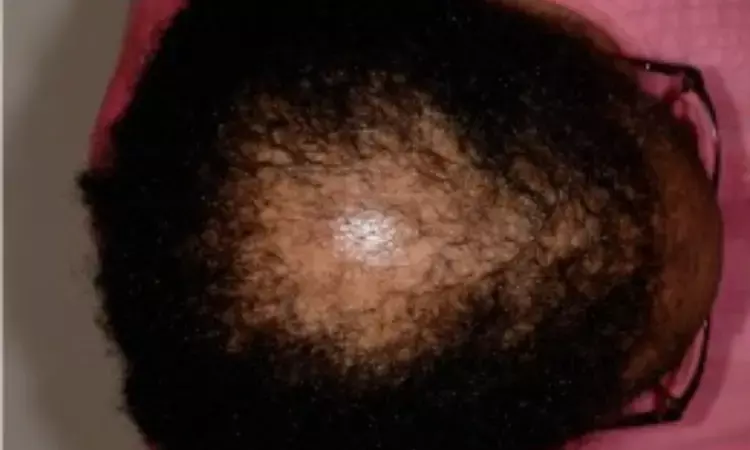- Home
- Medical news & Guidelines
- Anesthesiology
- Cardiology and CTVS
- Critical Care
- Dentistry
- Dermatology
- Diabetes and Endocrinology
- ENT
- Gastroenterology
- Medicine
- Nephrology
- Neurology
- Obstretics-Gynaecology
- Oncology
- Ophthalmology
- Orthopaedics
- Pediatrics-Neonatology
- Psychiatry
- Pulmonology
- Radiology
- Surgery
- Urology
- Laboratory Medicine
- Diet
- Nursing
- Paramedical
- Physiotherapy
- Health news
- Fact Check
- Bone Health Fact Check
- Brain Health Fact Check
- Cancer Related Fact Check
- Child Care Fact Check
- Dental and oral health fact check
- Diabetes and metabolic health fact check
- Diet and Nutrition Fact Check
- Eye and ENT Care Fact Check
- Fitness fact check
- Gut health fact check
- Heart health fact check
- Kidney health fact check
- Medical education fact check
- Men's health fact check
- Respiratory fact check
- Skin and hair care fact check
- Vaccine and Immunization fact check
- Women's health fact check
- AYUSH
- State News
- Andaman and Nicobar Islands
- Andhra Pradesh
- Arunachal Pradesh
- Assam
- Bihar
- Chandigarh
- Chattisgarh
- Dadra and Nagar Haveli
- Daman and Diu
- Delhi
- Goa
- Gujarat
- Haryana
- Himachal Pradesh
- Jammu & Kashmir
- Jharkhand
- Karnataka
- Kerala
- Ladakh
- Lakshadweep
- Madhya Pradesh
- Maharashtra
- Manipur
- Meghalaya
- Mizoram
- Nagaland
- Odisha
- Puducherry
- Punjab
- Rajasthan
- Sikkim
- Tamil Nadu
- Telangana
- Tripura
- Uttar Pradesh
- Uttrakhand
- West Bengal
- Medical Education
- Industry
Study Finds Low-Dose Doxycycline Effective for Central Centrifugal Cicatricial Alopecia

USA: A recent research letter has brought new insights into the treatment of central centrifugal cicatricial alopecia (CCCA), a form of scarring hair loss predominantly affecting African American women. The study, conducted through a single-center retrospective analysis, suggests that low-dose doxycycline could be a valuable addition to the initial management strategy for this challenging condition.
The key takeaway from the analysis is that low-dose doxycycline (40-80 mg) should be promptly included in the initial treatment plan for central centrifugal cicatricial alopecia.
"This recommendation is supported by findings showing that patients who received low-dose doxycycline in addition to topical or intralesional steroids experienced hair regrowth at a rate seven times higher than those who only received steroids, even when treatment was started an average of seven years after the onset of the disease," the researchers wrote in Journal of the American Academy of Dermatology.
CCCA is characterized by progressive hair loss that starts at the crown of the scalp and spreads outward, often leading to significant emotional distress for those affected. Traditional treatments include topical and intralesional steroids. However, currently, there are no evidence-based studies that have thoroughly assessed the use of doxycycline for managing central centrifugal cicatricial alopecia. To fill this knowledge gap, Ashley Obi, Meharry Medical College, Nashville, Tennessee, and colleagues reviewed patients' medical records in the Mount Sinai Health System Data Warehouse with a histopathological and clinical diagnosis of CCCA.
The study analyzed 143 patients with central centrifugal cicatricial alopecia, dividing them into two treatment groups: Group 1 (doxycycline ± topical corticosteroids/intralesional triamcinolone [ILTAC], n = 115) and Group 2 (topical corticosteroids ± ILTAC, n = 28). Both groups were predominantly female (Group 1: 95.6%, Group 2: 100%) and mostly African American (Group 1: 80%, Group 2: 89.3%). Patients in Group 1 sought treatment an average of 7 years after disease onset, compared to 4.9 years in Group 2. Clobetasol 0.05% was the most used topical steroid in both groups. Group 1 had more severe scalp involvement and pruritus.
The following were the key findings of the study:
- The most common doxycycline doses were 40 mg daily (52.2%), 40 mg twice daily (27.8%), and 20 mg twice daily (19.1%), with 71.3% of subjects receiving a daily dose of 40 mg.
- Group 1 had a significantly higher rate of hair regrowth (70%) than Group 2 (39%).
- The average time for hair regrowth was 6.2 months in Group 1 and 5.6 months in Group 2.
- Analysis of nonstandardized photographs by two blinded dermatologists showed a significant difference in hair regrowth between groups, with Group 1 showing a notable improvement in hair loss patterns.
"Our study underscores the importance of conducting prospective clinical trials to quantitatively evaluate the effectiveness of doxycycline in managing CCCA, which could help solidify its role in treatment guidelines," the researchers concluded.
Reference:
DOI: https://www.jaad.org/article/S0190-9622(24)00474-2/fulltext
Dr Kamal Kant Kohli-MBBS, DTCD- a chest specialist with more than 30 years of practice and a flair for writing clinical articles, Dr Kamal Kant Kohli joined Medical Dialogues as a Chief Editor of Medical News. Besides writing articles, as an editor, he proofreads and verifies all the medical content published on Medical Dialogues including those coming from journals, studies,medical conferences,guidelines etc. Email: drkohli@medicaldialogues.in. Contact no. 011-43720751


